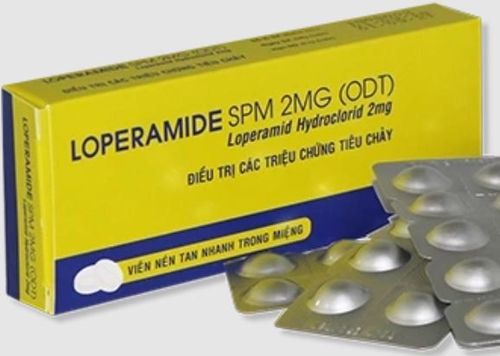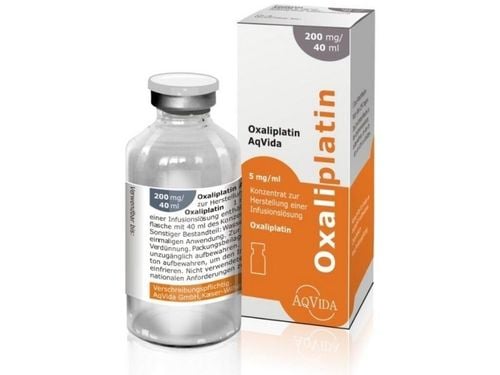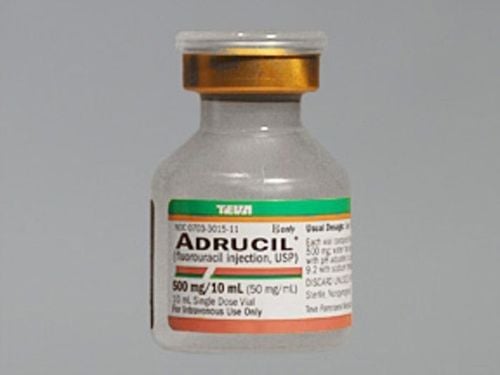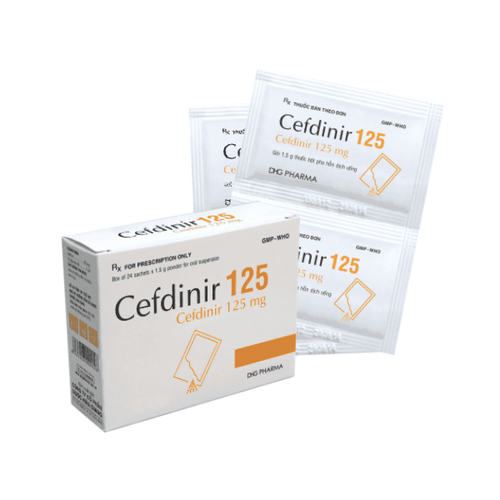This is an automatically translated article.
In certain populations, antibiotics can lead to serious infections caused by Clostridium difficile bacteria. This is a form of bacteria that occurs a lot in medical facilities, hospitals, nursing homes...
1. How did you get Clostridium difficile?
Antibiotics are often used to treat bacterial infections. But in some cases, antibiotics can trigger a serious infection caused by the bacteria Clostridium difficile. This type of bacteria can cause intestinal diseases, including colitis - a serious inflammation of the colon.
Clostridium difficile bacteria often spread a lot in medical facilities, hospitals, nursing homes... are places where healthcare workers can come in contact with this bacteria the most, followed by patients. or hospital residents.
Patients can become infected with Clostridium difficile if they come into direct contact with clothing, blankets or surfaces contaminated with the feces of an infected person, and then accidentally introduce these bacteria into the body through the mouth or nose.
2. Subjects at risk of Clostridium difficile infection
The subjects at highest risk of Clostridium difficile infection are the elderly who are in health care facilities, especially those who are being treated with antibiotics. The reason is that the human body has thousands of different types of bacteria (both beneficial and harmful), if antibiotics kill enough beneficial bacteria, there is a risk that Clostridium difficile will grow out of control. control and cause disease.
Besides, there are still young people infected with Clostridium difficile even without antibiotics or treatment in medical centers. Failure to wash hands thoroughly after exposure to bacteria can also be to blame.
Patients who are suffering from diseases such as: colon cancer, inflammatory bowel disease, weakened immune system due to cancer treatment... also have a higher risk of Clostridium difficile infection.

Nhiễm Clostridium Difficile có thể gây ra bệnh đường ruột
3. Symptoms of Clostridium Difficile Infection
Passing loose stools many times a day, abdominal cramps are one of the typical symptoms of Clostridium difficile infection. The stool may also be bloody if the infection is severe.
Symptoms and warning signs of a serious infection include:
Diarrhea that is frequent and watery, or sometimes bloody. Fever; Cramp; Vomiting and nausea; Weight loss/Anorexia; Dehydration; Fast heart beat; Abdominal cramps; Abdomen is soft. Symptoms of Clostridium difficile diarrhea usually begin 5-10 days after starting antibiotics. But it can also happen on the first day or up to 2 months. If diarrhea occurs more than 3 times / day and lasts more than 2 days, the patient should go to the hospital for specific examination.
4. What problems can a Clostridium difficile infection cause?
If Clostridium difficile infection is not treated early, the person can become dehydrated from severe diarrhea. The loss of fluid volume can affect blood pressure, kidney function, and the general condition of the body.
In very rare cases, infection by Clostridium difficile can lead to toxic megacolon and perforation of the intestine:
Toxic megacolon is a condition in which the colon is unable to pass gas or stool, and gets bigger and bigger. and broken. If not promptly emergency surgery can lead to death. Intestinal perforation is a condition in which the large intestine is perforated, allowing harmful bacteria to escape from the colon, causing a more dangerous infection than peritonitis.
5. How is Clostridium difficile infection diagnosed?
To diagnose whether you have Clostridium difficile infection, your doctor may recommend some tests such as:
ELISA test (Enzyme immunoassay); PCR test (Polemerase Chain Reaction - polymerase chain reaction); GDH/EIA; If your doctor suspects a serious problem with your colon, your doctor will likely recommend an X-ray or a colonoscopy.

Tiêu chảy là triệu chứng thường gặp khi nhiễm Clostridium Difficile
6. How is Clostridium difficile infection treated?
Although Clostridium difficile infections are triggered by antibiotics, some other antibiotics can still help kill this bacteria. These include: Metronidazole ; Vancomycin ; Fidaxomicin . However, patients should only use the drug when prescribed by a doctor, and carefully discuss the side effects of these drugs.
Sometimes Clostridium difficile infection can recur. Your doctor may then recommend treatment by re-establishing the colonic microbiome with healthy bacteria. This is done by inserting someone else's stool into the patient's colon through a colonoscopy or through the nasogastric tube. Stool donors are carefully screened to make sure there are no infections or parasites.
7. How can Clostridium difficile infection be prevented? If you are in a hospital or have long-term treatment in a medical facility, you can protect yourself from Clostridium difficile infection in several ways. For example:
Ask caregivers to wash their hands thoroughly before and after caring for you; It is recommended to disinfect all medical equipment before bringing into the room; Wash hands with soap and water after using the toilet and before eating. If you are prescribed an antibiotic for any reason, you should ask your doctor if it is really necessary. Talk to your doctor about other treatment options and don't buy antibiotics without your doctor's approval.
Many Clostridium difficile infections are mild and short-lived, but others can be very serious. Always be cautious and seek medical help if you have symptoms.
Please dial HOTLINE for more information or register for an appointment HERE. Download MyVinmec app to make appointments faster and to manage your bookings easily.













